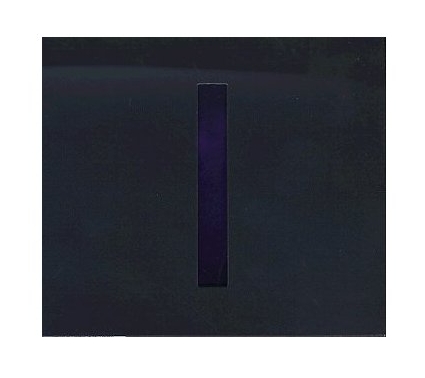
Plastikman is one of the monikers of the Canadian techno-minimalist Richie Hawtin. Known in the 1980s for his high-energy Detroit techno music, his 1998 album Consumed represents a more thoughtful side of his work. I consider it a masterpiece.
It's not for everyone. The CD box tells you right away what you're in for:

The song titles, written inside in barely readable tiny dark gray letters on the black background, confirm the message. Contain. Consume. Converge. And so on...
Far from inviting, this album is cryptic, dark, and self-possessed. With slow, four-square electronic beats drenched in echo, deep bass lines that sort of thump away, and occasional synthesizer melodies that float wistfully in the background, it sounds cold, soulless and mechanical at first. Hollowed out. Downright dull. It's up to you to find its charms and complexities.
If you don't like this kind of game, don't listen! But I do, and I found myself rewarded. There are a lot of gradual processes at work, moving along at different rates, some almost imperceptible. It's quite hypnotic when I let myself sink into it and watch them all at work.
According to Hawtin, the album was inspired by the vast empty plains of Michigan and Ontario. On his webpage, he writes "contents determined on I-94 en route to Windsor".
The seventh piece, Converge, is one of my favorites. It's a bit unrepresentative, because it's more dramatic than most. It features ghostly synthetic vocals riding atop a pulsating bass line, punctuated by occasional percussive elements that sound like heavy slabs of plastic crashing against some sort of protective shielding. As with most of the pieces, it's repetitive, with only the slightest bit of melodic development... but somehow there's a sense of gathering suspense, as if one were moving rapidly through a large space on a fraught journey, occasionally colliding with dangerous hunks of debris. The piece begins with one of these collisions, and also ends with one. It then echos into oblivion... and the next piece begins.
For a taste, try Richie Hawtin's website — click on Consumed.
baez@math.removethis.ucr.andthis.edu
© 2007 John Baez